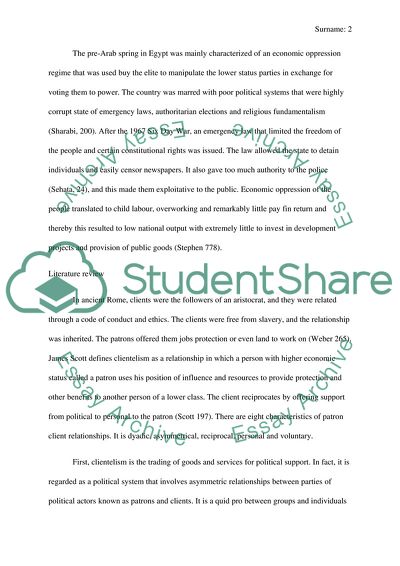Cite this document
(Patronage and Clientelist Politics in Egypt Research Paper, n.d.)
Patronage and Clientelist Politics in Egypt Research Paper. Retrieved from https://studentshare.org/politics/1789247-patronage-clientelist-politics-in-egypt
Patronage and Clientelist Politics in Egypt Research Paper. Retrieved from https://studentshare.org/politics/1789247-patronage-clientelist-politics-in-egypt
(Patronage and Clientelist Politics in Egypt Research Paper)
Patronage and Clientelist Politics in Egypt Research Paper. https://studentshare.org/politics/1789247-patronage-clientelist-politics-in-egypt.
Patronage and Clientelist Politics in Egypt Research Paper. https://studentshare.org/politics/1789247-patronage-clientelist-politics-in-egypt.
“Patronage and Clientelist Politics in Egypt Research Paper”, n.d. https://studentshare.org/politics/1789247-patronage-clientelist-politics-in-egypt.


